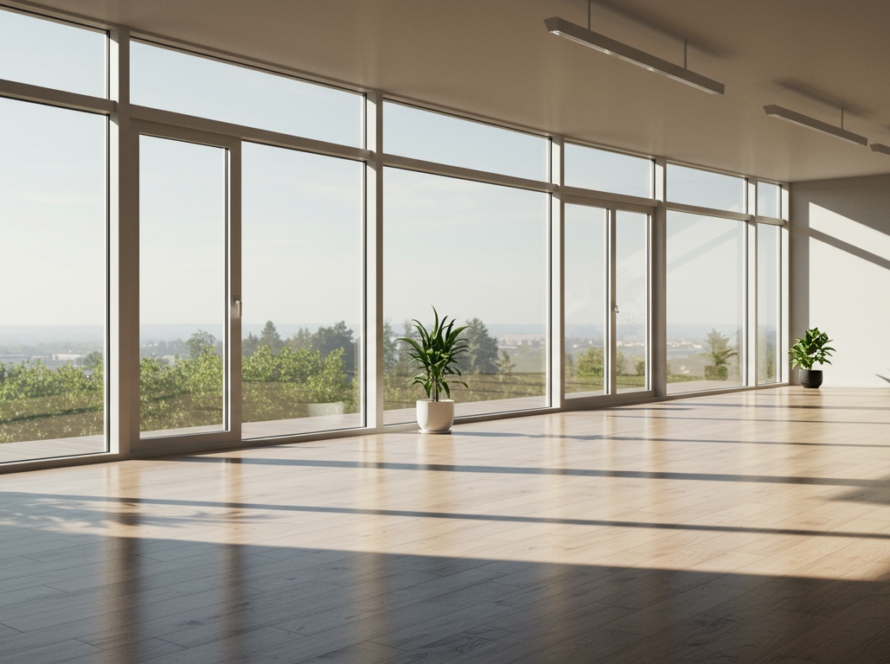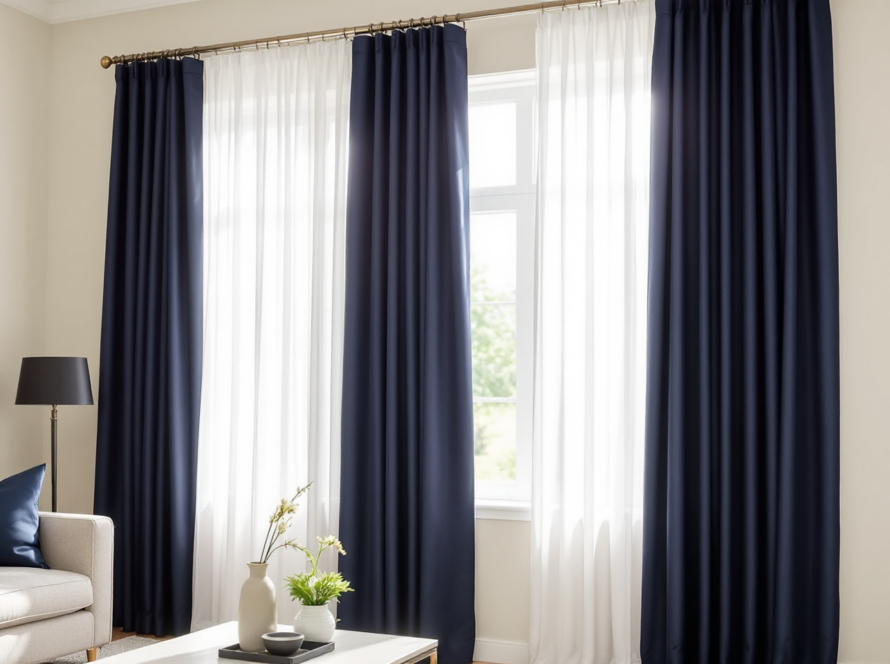If you live in a hot and humid climate, you know how brutal the combination of heat and moisture can be—both for your comfort and your energy bills. The right windows can make all the difference by blocking heat, reducing humidity buildup, and keeping your home energy-efficient.
But not all windows are built for sweltering summers and muggy air. Choosing the best windows for hot and humid climates means looking at frame materials, glass coatings, and ventilation options that help regulate indoor temperatures while preventing excess moisture.
In this guide, we’ll break down exactly what to look for to keep your home cool, dry, and energy-efficient.
TL;DR – Quick Guide
- Low SHGC (Solar Heat Gain Coefficient): Look for a rating of 0.25 – 0.40 to block excess heat.
- Low-E Glass: Reduces heat transfer while maintaining natural light.
- Vinyl or Fiberglass Frames: These resist warping and moisture damage better than wood.
- Double or Triple Pane Windows: Insulate better than single-pane glass.
- Proper Ventilation: Casement or awning windows help promote airflow and reduce humidity.
Detailed Breakdown: Choosing the Right Windows
1. Prioritize Low SHGC to Block Heat
The Solar Heat Gain Coefficient (SHGC) measures how much heat a window allows inside.
- Lower SHGC (0.25 – 0.40) = Less heat gain, better cooling efficiency.
- Higher SHGC (above 0.50) = More heat gain, which is bad for warm climates.
- ENERGY STAR recommends SHGC below 0.30 for Southern regions.
Example: A window with SHGC of 0.28 will keep your home significantly cooler than one with SHGC of 0.50 in a hot climate.
2. Opt for Low-E (Low Emissivity) Glass
Low-E glass has a thin metallic coating that reflects infrared heat while allowing visible light through. This helps:
✔ Block UV rays to prevent furniture fading.
✔ Reduce indoor heat buildup while maintaining natural daylight.
✔ Lower cooling costs by minimizing heat transfer.
Look for Low-E 366 glass, which is designed for extreme heat and humidity.
3. Select Durable, Moisture-Resistant Window Frames
Not all window frames hold up well in hot and humid conditions. Some materials warp, rot, or swell when exposed to moisture.
Best frame materials for humid climates:
- Vinyl: Affordable, resists warping, low maintenance.
- Fiberglass: Strong, durable, won’t expand or contract with humidity.
- Aluminum (with thermal breaks): Withstands heat but needs insulation to prevent heat transfer.
Worst choice: Wood—it absorbs moisture, leading to warping, rotting, and mold growth.
4. Use Double or Triple Pane Glass for Insulation
Single-pane windows provide little insulation, letting heat pour in. Instead, go for:
- Double-pane windows: Two layers of glass with argon gas for insulation.
- Triple-pane windows: Even better for extreme heat and noise reduction.
- Tinted or reflective glass: Helps block out excessive sunlight.
💡 Pro Tip: Windows with argon or krypton gas fills improve insulation by slowing heat transfer.
5. Choose Windows That Improve Ventilation
In humid climates, proper airflow is key to preventing mold, mildew, and stuffy air. The best window styles for ventilation are:
- Casement Windows: Open fully for maximum airflow.
- Awning Windows: Can stay open during rain, promoting constant ventilation.
- Sliding Windows: Easy to open for cross-ventilation.
💡 Avoid fixed windows (like picture windows) if your home struggles with humidity—they don’t open for airflow.
Key Takeaways
✔ Choose windows with Low SHGC (below 0.40) to block heat.
✔ Use Low-E glass to reflect infrared heat and reduce UV damage.
✔ Opt for vinyl or fiberglass frames that resist moisture.
✔ Invest in double or triple-pane glass for better insulation.
✔ Pick casement or awning windows to improve ventilation.
The right windows can slash cooling costs, prevent humidity damage, and keep your home comfortable year-round.
FAQs
1. What type of glass is best for hot and humid climates?
Low-E glass with a low SHGC (below 0.30) is the best choice. It reduces heat gain while still allowing natural light in. Tinted or reflective glass also helps in extremely sunny areas.
2. Do vinyl windows hold up in humid conditions?
Yes! Vinyl is moisture-resistant and doesn’t warp, swell, or rot like wood does. It’s a durable, low-maintenance option perfect for humid climates.
3. How do I prevent condensation on my windows?
Choose double or triple-pane windows with argon gas fills to reduce temperature differences. Also, ensure proper ventilation with casement or awning windows to reduce indoor humidity.
4. Are triple-pane windows worth it in hot climates?
Triple-pane windows offer better insulation, but double-pane Low-E glass is usually enough for hot climates. Triple-pane is more beneficial in extreme weather conditions or noisy areas.
5. How can I reduce cooling costs with the right windows?
✔ Look for Low-E coatings to reflect heat.
✔ Select windows with low SHGC (below 0.30).
✔ Install insulated frames (vinyl, fiberglass).
✔ Use energy-efficient window coverings like shades or films.


